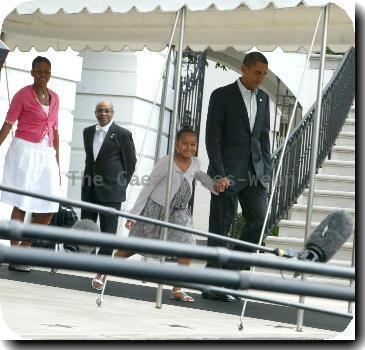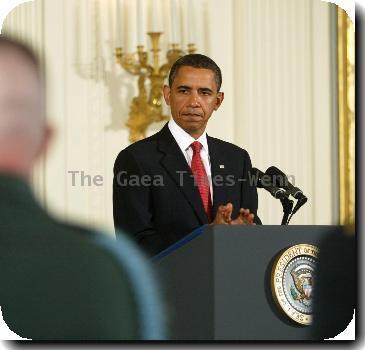Britain says it passed airline suspect data to US but didn’t single him out as high-risk
By Paisley Dodds, APMonday, January 4, 2010
Britain says it passed airliner suspect data to US
LONDON — British intelligence passed on to U.S. authorities information about a Nigerian accused of trying to blow up a Detroit-bound airliner but he was not singled out as a particular risk, Prime Minister Gordon Brown’s office said Monday.
Umar Farouk Abdulmutallab’s name was included in a dossier of people who made contact with known extremists in the United Kingdom but officials believe he was radicalized after he left the country in 2008, according to Brown’s spokesman, Simon Lewis.
The disclosure came a day after British security officials said they were aware that Abdulmutallab was in contact with known radicals shortly after he came to the U.K. in 2005 but did not consider him a sufficient threat to single him out and alert U.S. authorities.
Investigators say Abdulmutallab, a 23-year-old Nigerian who studied in engineering in London and later went to Yemen, sneaked an explosive device aboard his Northwest Airlines flight from Amsterdam to Detroit on Christmas Day but was not able to ignite it as planned.
A U.S. counterterrorism official said Monday the British government did not provide material on Abdulmutallab that could be termed a “smoking gun” — meaning, information that would have alerted authorities to the bomb plot. The official declined to be named because he was not authorized to comment on the matter publicly.
President Barack Obama has said there was a systemic failure to prevent the attack and ordered a thorough review of security shortcomings. The president has summoned Homeland Security officials to meet with him in the White House on Tuesday.
“Clearly there was security information about this individual’s activities, and that was information that was shared with the U.S. authorities,” Lewis said. “That is the key point.”
Downing Street would not immediately give any other specific details, including when the information was shared with U.S. authorities.
Although certain information was exchanged, Abdulmutallab wasn’t considered violent or a threat to the United States so he was not flagged as a high-risk suspect to U.S. authorities, a British government official told The Associated Press on Monday. He spoke on condition of anonymity because of the sensitivity of his work and declined to elaborate on what information was shared.
“The U.S. had everything they required in terms of threat risks,” the British official said.
British intelligence and counterterrorism officers routinely monitor people in the country with known links to extremists and or suspected links to terror financing. Many are not considered violent or high-risk priorities.
Abdulmutallab, who left Britain in October 2008 after graduating from the University College London, was denied a second student visa in May 2009. Government officials said the institution on his application was bogus.
“There are a number of individuals who try and reach out to radicals and others,” Lewis said. “It does not necessarily mean they are going to be planning any specific action. Whatever he decided to do, he decided to do whilst he was out of the country.”
Intelligence officials realized about a year after Abdulmutallab came to London to study in 2005 that he was in contact with Islamic extremists whose communications were being monitored.
Although there are no set profile characteristics to indicate whether a suspect is likely to turn violent, intelligence officials often look at suspects’ associates, travel patterns, threats and activities when assessing overall risk.
In Ghana, officials said Monday that Abdulmutallab spent nearly two weeks in the West African nation before beginning his journey to Detroit and did not behave suspiciously.
Abdulmutallab first arrived in Ghana’s capital, Accra, on Dec. 9, Deputy Information Minister James Agyenim-Boateng said.
He had traveled on an Ethiopian Airlines flight from Dubai which stopped over in the Ethiopian capital, Addis Ababa. He then left Accra on Dec. 24 for Lagos, Nigeria, Agyenim-Boateng said, according to the Ghana News Agency which reported his remarks.
Tags: Accra, Africa, Barack Obama, Christmas, England, Europe, Ghana, London, National Security, North America, Terrorism, United Kingdom, United States, West Africa, Western Europe

